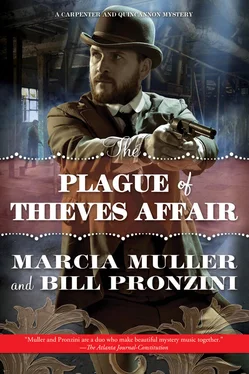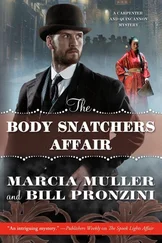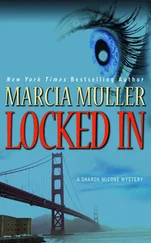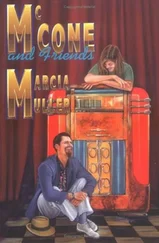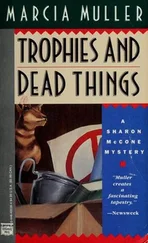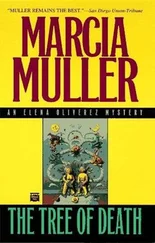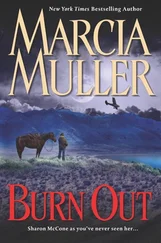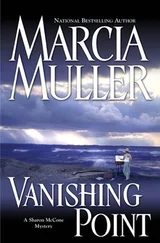Having settled this in her mind, Sabina turned her thoughts to the task itself. How would she go about tracking down a man who never remained long in one place, who was prone to adopting outlandish disguises, and who seemed to thrive on shadowy associations with thieves, blackmailers, and other crooks?
Three starting points occurred to her, one direct, two indirect. The latter pair were the most likely to succeed, but both required an unknown amount of passive waiting. The direct one first, then. But not until she had verification of Roland W. Fairchild’s bona fides.
She pinned on her new straw boater with its stylish trim of ostrich tips and crushed ribbons (inelegantly referred to as a “settin’ hen” by some), donned her fur-collared long coat, locked the office, and set off on her rounds.
Golden State’s business offices were clustered at the east end of the second floor, all of them small and cramped except for the two-room office inhabited by James Willard. This was Quincannon’s first stop upon his return to the brewery, but Willard was not there. His secretary said he had left to attend a meeting and hadn’t been sure when he would be back.
Quincannon debated. Should he wait to relay his information to the brewery owner before bracing Caleb Lansing? No, he decided. He was a patient man most of the time, but not when he was about to put the arm on a lawbreaker. He didn’t need Willard’s blessings to make a citizen’s arrest, and the sooner Lansing was in his custody the better.
He strode down the hall to the assistant brewmaster’s cubicle, found it empty, and proceeded to the nearest occupied space, that of the company bookkeeper and paymaster, Elias Corby. He poked his head inside and asked, “Would you know where I can find Caleb Lansing, Mr. Corby?”
Corby, a pint-sized, long-nosed gent dressed in striped galluses and rough twill trousers, paused in his writing in an open ledger book. “Lansing? Why, no, I don’t.”
“When did you see him last?”
“Just after I arrived this morning. Have you tried the brewhouse?”
“My next stop.”
The brewhouse was at the opposite end of the building. Lansing was nowhere to be found in the rooms containing the malt storage tanks and mash tun. Jacob Drew, the mash boss, a red-haired, red-bearded giant, reported that he’d seen the assistant brewmaster in the fermenting room a few minutes earlier.
“What d’ye want with him, mister?” Drew asked. “Something to do with your inspections?”
“You might say that.”
“The lad’s a weak stick, but he’s done competent enough work since poor Ackermann’s accident.”
“Work, yes,” Quincannon said, “though not in the brewer’s art.”
He left Drew looking puzzled and followed a sinuous maze of piping to the fermenting room, a cavernous space filled with gas-fired cookers and cedar-wood fermenting tanks some nine feet in height and circumference. Two of the cookers contained bubbling wort, an oatmeal-like mixture of water, mashed barley, and soluble starch turned into fermentable sugar during the mashing process. After the wort was hopped and brewed, it would be filtered and fermented to produce “steam beer” — a term that had nothing to do with the use of actual steam. The lager was made with bottom-fermenting yeast at sixty to seventy degrees Fahrenheit, rather than the much lower temperatures necessary for true lager fermentation, because the city’s winters were never cold enough to reach the freezing point. Additional keg fermentation resulted in a blast of foam and the loud hiss of escaping carbon dioxide when the kegs were tapped, a sound not unlike the release of a steam boiler’s valve.
The heady aroma was strongest here. Once again Quincannon’s nostrils began to quiver, his mouth and throat to feel like the inside of a corroded drainpipe. He had the fanciful, and rueful, wish that a man could be fitted with a relief valve as easily as a boiler, to ease pressure buildup inside his head.
On the catwalk above the cookers, Caleb Lansing stood supervising the adding of dried hops to the cooking wort. Workmen with long-handled wooden paddles stirred the mixture, while others skimmed off the dark, lumpy scum called krausen, a blend of hop, resin, yeast, and impurities that rose to the surface. The slab floor, supported by heavy steel girders, was slick with globs of foam that a hose man sluiced at intervals into the drains.
Lansing was a rumpled, obsequious individual in his middle years, given to smoking odiferous short-sixes; cigar ash littered his loose-hanging vest and shirtfront. He had just finished consulting a turnip watch when he spied Quincannon. He’d been on his guard every time they’d met previously, even though he had little to fear from a man he believed to be no more than a city inspector. Now, nervous tension once again pulled his vulpine features out of shape — the look of a guilty man. Quincannon had seen that look often enough to know it well.
Lansing swung away from the low railing, came forward as he approached, and sought to push past him. Quincannon blocked his way. “I’ll have a word with you in private, Lansing.”
“Not now you won’t. Can’t you see I’m busy?”
“My business with you won’t wait.”
“What business?”
“Otto Ackermann. Xavier Jones. Cyrus Drinkwater and West Star Brewing.”
Fright shone in the assistant brewmaster’s narrow face. “I don’t know what you’re talking about.”
“The game’s up, Lansing. I know the whole lay.”
“You know... You’re not an inspector. Who the devil are you?”
“I’ll give you one guess.”
Lansing muttered, “Dirty flycop!” under his breath and succeeded this time in shoving past him. He would have run then, but Quincannon grabbed the trailing flap of his vest and yanked him around.
“Come along and don’t give me any trouble—”
The blasted rascal was quick as a cat, not with his hands but with his feet. The toe of his heavy work shoe thudded painfully into Quincannon’s shin, broke his hold on the vest, and sent him reeling backward against the railing. Lansing spun and fled to the stairs before Quincannon, growling an oath, could regain his balance and stumble in pursuit.
Drawing his Navy Colt was out of the question; he couldn’t very well fire it in these crowded confines, even in warning, and brandishing it would likely cause panic among the workers below. Instead he shouted as he clambered down the stairs, “Stop him! Stop that man!”
“No, no, don’t let him catch me!” Lansing cried in return. “He’s a madman, he’s trying to kill me!”
The workers stood in clustered confusion, looking from one to the other of the running men. Lansing threaded through them, vaulted an intestinal coiling of pipes, and disappeared behind one of the vats. Quincannon might have snagged him before he escaped from the fermenting room if a mustached workman hadn’t stepped into his path, saying, “Here, what’s the idea of — ufff! ” Quincannon bowled him over, but in doing so his foot slipped on the wet floor and he went skidding headfirst into a snakelike tangle of hose. By the time he disengaged himself and regained his feet, fought off clutching hands, and plunged ahead in a limping run, Lansing was nowhere to be seen.
There was only one way out of this section of the brewery. Still somewhat hobbled, Quincannon went through the boiler room, past the corner room where the vats of rejected beer stood in heavy shadow, then past the freight elevator and down the stairs to the lower floor. An electrically lit passage led into the main tunnel that divided the building in half. He hurried along the tunnel, out onto the Seventh Street loading dock. There was no sign of Lansing anywhere in the vicinity. Half a dozen burly workmen were wrestling filled kegs onto a pair of massive Studebaker wagons; Quincannon called to them. No, they hadn’t seen Lansing come out.
Читать дальше
